
From Dream to Draft: Transform Your Ideas with Creative Writing Courses
fleepbleep.com – Friday November 3, 2023

Are you an aspiring writer with a head full of stories waiting to be told? Do you have a burning desire to share your thoughts, emotions, and imagination with the world? If so, you’re not alone. Many dream of becoming writers but struggle to turn their ideas into fully-fledged drafts. The good news is that there’s a path from dream to draft, and it often begins with creative writing courses.
In this article, we’ll explore the transformative power of creative writing courses, how they can help you unlock your creativity, hone your skills, and ultimately bring your writing dreams to life. Whether you’re a complete novice or an experienced writer looking to refine your craft, read on to discover how these courses can be your guiding light on the journey from dream to draft.

The Ultimate Guide to Finding a Literary Agent for Your Book
legaldesire.com – Thursday November 2, 2023

If you’re an aspiring author who dreams of publishing your book by a traditional publishing house, securing a literary agent is essential. A literary agent acts as a professional representative, connecting authors with publishers. Their industry connections, expertise, and experience are instrumental in selling your manuscript to the right publisher, negotiating favorable deals, and safeguarding your rights.
However, finding the ideal literary agent who is genuinely interested in your book and can secure the best deal can be daunting. Standing out from many aspiring authors and avoiding scams and pitfalls are common concerns.
In this guide, we will address these questions and provide valuable insights on how to find a literary agent. Whether your book is fiction or nonfiction, Christian or secular, genre-specific or literary, we will offer the best tips and strategies to help you find and attract the perfect agent for your manuscript.
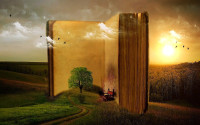
Example Of A Book Proposal That Should Have Been Accepted
financialsamurai.com – Tuesday October 24, 2023

So you want to publish the next great book! To do so you first need a book proposal.
Back in late 2011, I spent hours putting together a book proposal for my severance negotiation strategy book, How To Engineer Your Layoff.
After engineering my own layoff three months earlier, I had hoped to get a literary agent, land a book deal, and spend the next year writing the book. Writing a book was always on my bucket list. And what better time to do so than after retiring on a beach in Hawaii?
Alas, fate had other plans. I submitted my book proposal to about 15 agents and didn't get a single reply back. Undaunted, and with the help of my dad and wife, I decided to self-publish my book anyway.

Should You Write Something Different?
By G. Miki Hayden
Instructor at Writer's Digest University online and private writing coach
firstwriter.com – Sunday October 22, 2023

The obvious answer to that simple question would seem to be yes, but it’s not the answer I’m going to give you—since I care about the outcome for you. I’ll, instead, give you a qualified yes and tell you to write something different than everything that’s out there if you can’t help yourself—if the urge is too strong to resist.
Rather a while back I wrote a wholly different novel about Jesus the Christ. Quite different, in fact. That is to say an actually spiritual novel based on my training in a secret spiritual lineage: an original novel. (Which you can find currently on Smashwords—Jesus of Nazareth.) I knew I had only a few publishing houses I might approach and very few agents, but I was impelled to produce this rather different novel due to the materialistic understandings offered in a few contemporary novels. Jesus starting out as an anti-Roman revolutionary? Seriously? I had to utter a resounding no to something missing the mark by that far. Or a Jesus so fully human that not a touch of the divine might be found within his suffering. Puzzling. From a Christian publisher, I got “If we want a book about Jesus, we’ll have one of our own people write it.” So then, forget about originality and creativity. Apparently people only want their own opinions played back. Yeah, no surprises there.
Or picture me hunting down an agent amid the negatives directed at my latest production of human wisdom (if I may say so myself). An agent I knew through other means told me, “You write well, but I don’t like the book.” Yes, I’m quoting. Never mind “Not for my list. Best of luck.” You know, the typical phrases that agents use to convey a pinch of faux humility. This guy had none of that.
The book my agent acquaintance hated (though he probably read no more than a page or two), is Rescued, now out on Amazon from an honest-to-goodness publisher, having been rejected by the very few agents willing to even have a peek. And all would no doubt have thrust book two in the Rebirth series, Re-Live, aside as well—a wholly different book from what is being published these days, certainly suited to follow Rescued, both presenting transforming protagonists who are deep into the martial arts and have some appearance of contemporary heroes. Are you, like me, the victim of your own inspiration and what an editor I listened to recently called the flatness of our culture?

Want to write a novel? National Novel Writing Month celebrates 25th anniversary
eu.news-journalonline.com – Saturday October 21, 2023

On November 1st, hundreds of thousands of people around the world will suddenly start crouching over their laptops, keyboards, notebooks, journals and tablets as they try to destroy and rebuild relationships, craft the perfect murder, create a thrilling adventure, devise a winning courtroom argument, help plucky kids discover their true destinies and find new and unusual ways to dispose of a body.
November is National Novel Writing Month, or NaNoWriMo, and this year marks the 25th frantic, caffeine-driven year for millions of otherwise perfectly sane people. If you've always wanted to write but lacked motivation, commitment or plot, that pressure has now been replaced with a simple deadline. The event begins at 12:01 on Nov. 1 and it stops at the stroke of midnight, Nov. 30.
Your goal: producing a 50,000-word novel in a frustrating, exhilarating time during which you’ll push yourself to the limit of your endurance and get over the psychological fear of writing a book by whomping out something that at least looks like one.

Craft your scary story with these 4 writing tips from Bryant’s Meher Manda
news.bryant.edu – Thursday October 19, 2023

Whether it’s Bram Stoker’s Dracula or Stephen King’s The Shining, horror stories have spellbound readers since Greek and Roman times. The genre seeks to create feelings of fear, dread, and terror, and takes skill and patience to perfect.
“Horror is most successful when it unsettles the reader with the ordinary,” says History, Literature, and Arts Lecturer Meher Manda, MFA, who’s teaching the College of Arts and Sciences’ “Fiction Writing Workshop.” “People talk about Stephen King as the great bastion of American horror, and many of his novels revel in suburban disturbance where this well-meaning town of well-meaning people has a darker underbelly.”
As a writer, editor, and cultural critic, Manda enjoys horror — especially the stories that shock readers into imagining fears they never knew they had. To help individuals who are creating their own bone-chilling stories, she offers the four following writing strategies.
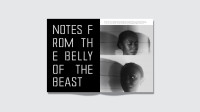
Inque Magazine is a literary force that will memorialise our time
itsnicethat.com – Wednesday October 18, 2023

Editor-in-chief Dan Crowe, and Pentagram partner, designer and former New York Times Magazine art director Matt Willey uncover the process behind issue two of the magazine that will only have ten.
Who doesn’t feel it? Being perplexed at how we’re going to define this generation. Living in the age of information, where stories from near and far are accessible at just a click, and the allure of the most revered crumbles under increased access to their lives and methods, it’s no wonder that a highlight reel may not be so easy to assemble. But, in the case of Inque magazine, literature is a powerful force that can remind us of the power of our collective now, in just ten years, with a projected ten issues, in a feat to memorialise the 2020s. “Every issue is its own adventure; tracking down new writers, or finally getting in touch with someone I’ve always wanted to work with,” Dan Crowe, the magazine’s editor-in-chief tells us of his journey to commissioning the likes of Annie Ernaux, Sheila Heti and Stephen Fry for its second issue.
Dan, as with all of us, has seen an increase in writers, publishers and magazines throughout the literary sphere. “But, sometimes I wish for there to be an explosion of a new and interconnected group of authors, like a new Martin Amis, Ian McEwan, Julian Barnes and Salman Rushdie hegemony, a diverse and younger school,” he tells us. “And, this seems to occur when there is a coherent force to fight against, a common enemy, and everything just feels so fractured now.” In an effort to bind this generation’s efforts, designer Matt Willey creates with the knowledge that Inque may never make sense until the decade-long ride is over. “It takes on a shape; there’s a beginning, middle and end. Like in Agnes’ photo booth series; she will change over the course of a decade, she will age, life will change and things will be different,” Matt adds.
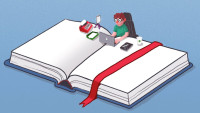
You wrote a book! Now make a viral TikTok about it.
mashable.com – Sunday October 15, 2023

Authors can no longer succeed in their craft by writing alone. They must embody multiple roles: writers, publicists, digital marketers, and social media managers. They must be rabid in their self-promotion and steadfast in their personal branding. They have to produce viral tweets, create viral TikTok videos, and optimize their Instagram accounts so that they can get paid to do the work they want to do.
In 2023, writing a book is the easy part.
That's not to say that self-promotional branding is a novel concept for writers. In the 18th and 19th centuries, authors pulled off some wild stunts to build their brands in newspaper column inches. In the 1920s, Virginia Woolf went shopping with Vogue. Ernest Hemingway did photo ops on safaris and fishing trips. John Steinbeck posed for beer ads. And beyond that kind of classic self-branding, promotion in the 1900s involved a significant amount of personal networking. Anne Sexton, for instance, became a literary star not only because she was an exceptional poet, but also because she was the daughter and wife of salesmen and excellent at self-promotion, as Joy Lanzendorfer pointed out in LitHub. Sexton, who won the Pulitzer Prize for poetry in 1967, tried aggressively to get her work seen. She was ambitious, sending her poems to dozens of publications at a time and hunting down poets she admired, flirting with them, and then demanding they mentor her.
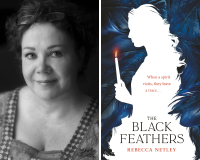
Rebecca Netley on the difficulties of writing ghost stories
culturefly.co.uk – Thursday October 12, 2023

As a long-time lover of supernatural and ghost stories it had always been my burning ambition to write one. My first book had been a thriller and I hadn’t anticipated the particular difficulties that might confront me when moving to this particular genre.
I am in complete agreement with Susan Hill who famously said of writing ghosts stories: ‘Less is more.’ Greater fear is generated by suggestion and ambiguity than by a fully-formed apparition – the shadow behind the door, the singing tones of a ghostly child, a rocking-chair moving on its rockers with no apparent cause and footsteps in an empty room. Once you present the ghost, although the moment should be fear-inducing, it is actually the instant when some fear is dispelled.
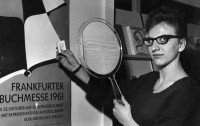
What Was Literary Fiction?
thenation.com – Tuesday October 10, 2023

As an English professor, I’m often asked, “What do you like to read?” Sometimes I answer, “Literary fiction.” By that phrase, I mean fiction that privileges art over entertainment. I did not know until recently that literary fiction—the phrase, not what it stands for—grew up with me. We’re about the same age. And while I hope I’m only midway through my life, literary fiction might be dead. More precisely, what might have died is literary fiction as a meaningful category in publishing and bookselling.
The term “literary fiction” began its rise about 40 years ago. In the summer of 1980, John Dessauer, a book industry analyst, raged against those who were bemoaning the state of publishing. A wave of mergers and acquisitions had consolidated the industry in recent years, as once-independent publishers were absorbed by conglomerates. Gulf + Western owned Simon & Schuster. Pearson owned Penguin, which had merged with Viking to form Viking Penguin. S.I. Newhouse had just acquired Ballantine, Knopf, Pantheon, and Random House from RCA. Eventually, just five multinational conglomerates—the Big Five—would control most of trade publishing.
Get the free newsletter | Submit a news item or article | Get Writers' News for your website





